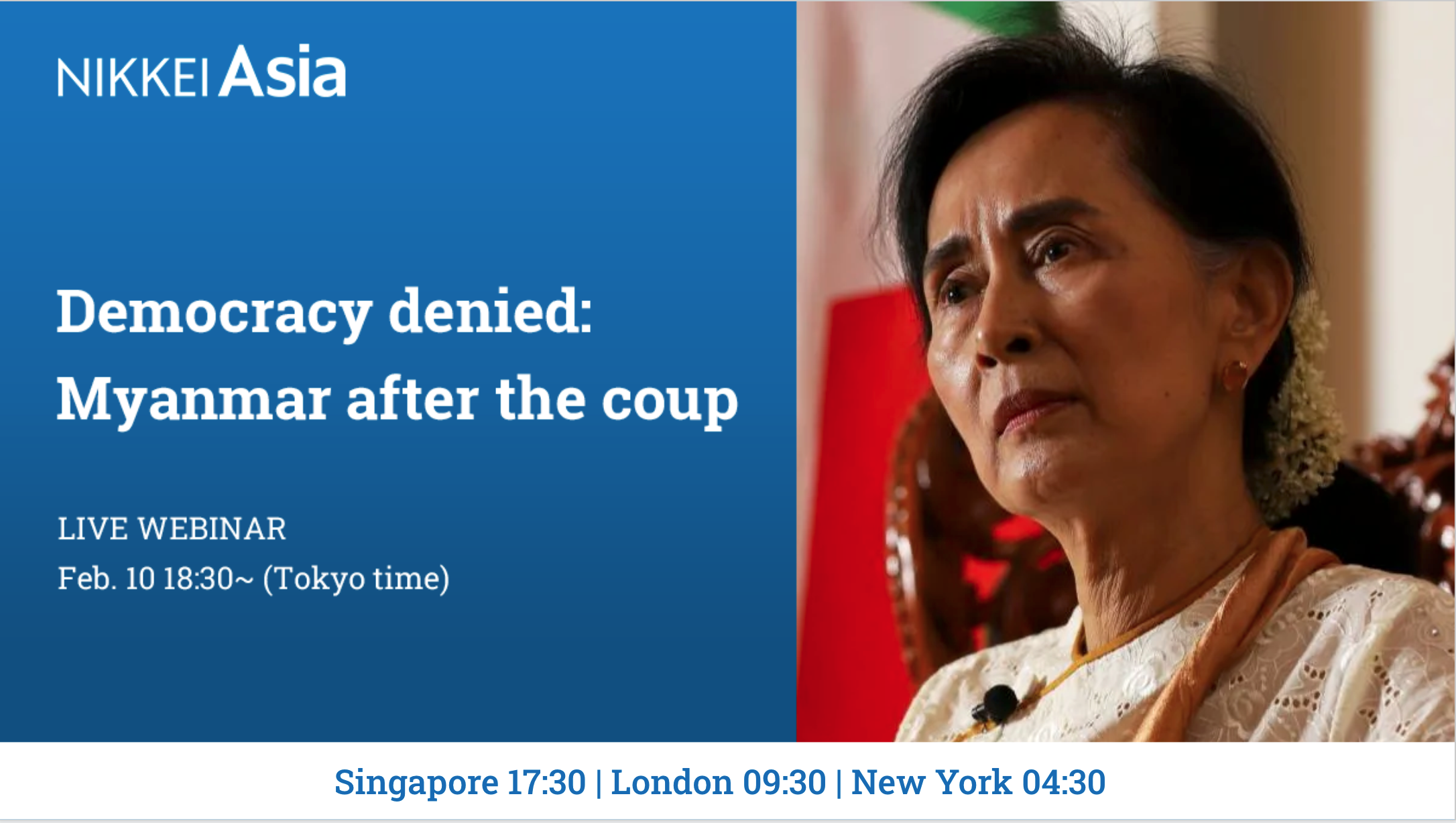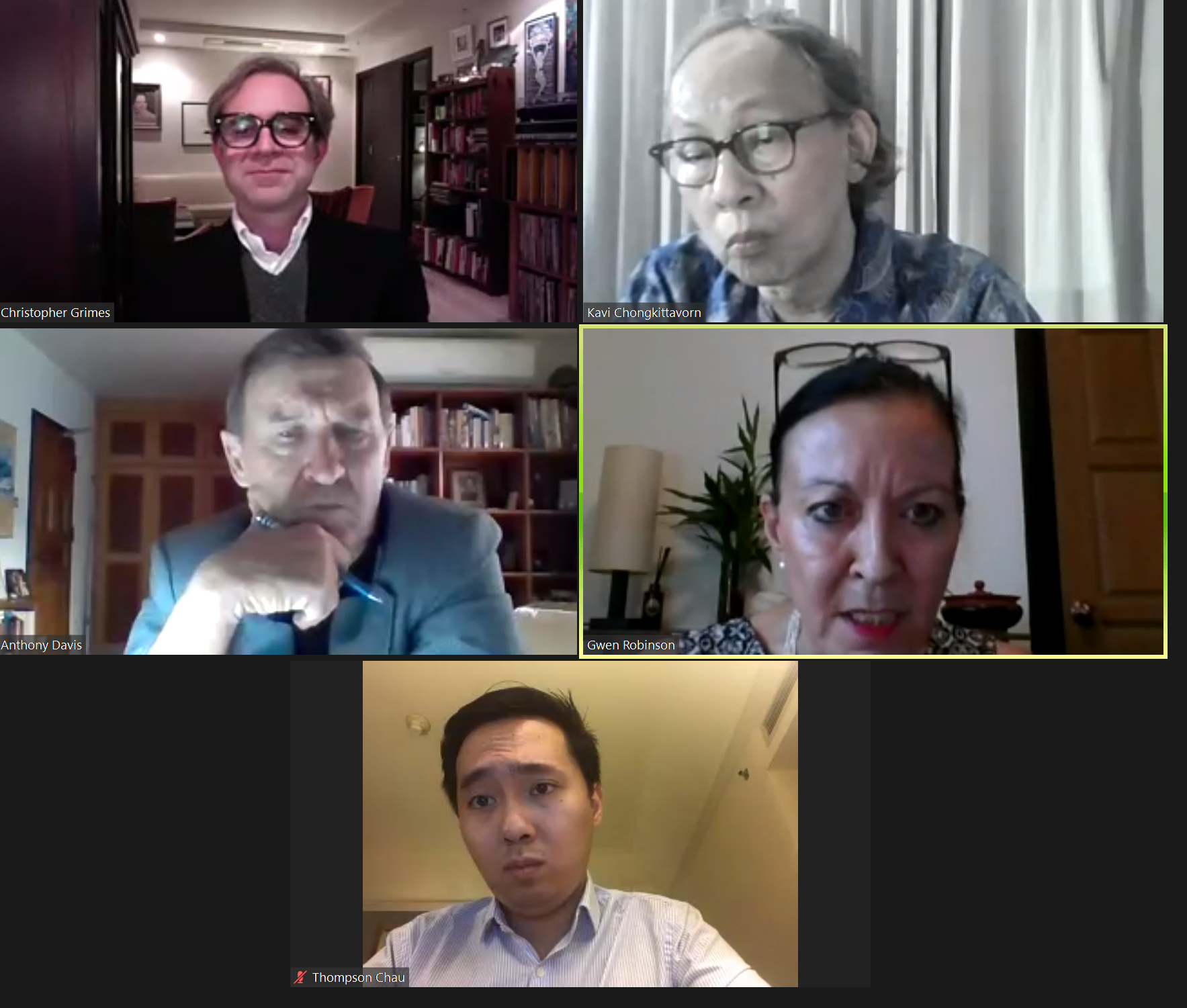- News
Democracy denied: Myanmar after the coup - a summary

On 10 February 2021, Nikkei Asia conducted an online webinar via Zoom titled, "Democracy denied: Myanmar after the coup." The webinar brought together a panel of esteemed individuals: Mr. Thompson Chau, former Associate editor and business editor at the Myanmar Times; Gwen Robinson, editor-at-large at Nikkei Asia; Tony Davis, an analyst at Jane's information Group; and Kavi Chongkittavorn, a senior researcher at the Institute of Strategic and International Studies at Chulalongkorn University. With the participation of such experts, the event enabled a succinct dissection of Myanmar's controversial coup d'état.
Thompson Chau, reporting live from Myanmar, gave first-hand information describing the scale and demographics of the demonstrations and the response of Myanmar's military. "Not only young people, but the elderly, parents and their children and ethnic minorities are all participating, along with civil servants, doctors and engineers," Chau recounted. "Many demonstrators are wearing black to express their support for democracy, rather than for any person or party." In response to the military's decision to shut down the internet and telecommunication networks, "disruptions to business have been aggravated," Chau pointed out. "[This is] because the internet has been shut down at a time when economic activities rely heavily on its use due to the coronavirus pandemic."
Gwen Robinson suggested that there is a possibility that a coup had been in the works ever since 2015, when Aung San Suu Kyi and her National League for Democracy (NLD) won the general election and came into power. Frustrated and dissatisfied with the results, the military had then begun preparations to employ a coup or other methods to wrest back control of the government.
Stressing that the NLD's overwhelming victory in Myanmar's most recent general election was the catalyst for the military to make its move, Tony David posited that the coup was a result of fear on the part of the military. Ever since the end of World War II, the military had always seen itself as the "guardian" of the nation. It feared that if the NLD continued to be in government, the military would soon entirely lose its influence and relevance.

Kavi Chongkittavorn pointed out that the current coup places Myanmar's foreign policy at a crossroads. In recent years, because the Association of Southeast Asian Nations (ASEAN) has become more united in advocating for democracy, lawfulness and human rights, "it has been increasingly difficult for Myanmar's military government to build good relations with ASEAN," Chongkittavorn notes. "As for China, it has been trying to foster good relations with both the NLD and the military, so it may be difficult for Myanmar's military leaders to establish good relations with China as well."
With the successful conclusion of "Democracy denied: Myanmar after the coup," Nikkei Asia plans to organize and conduct more events for the benefit of its readers.
Nikkei Inc.

Our mission is to deliver useful information to businesspeople around the world through our global products. We use our extensive network in Asia to conduct in-depth research on fast-growing markets and companies. By bringing you unique perspectives and the latest economic and political news, we help you succeed in your business in Asia.
See More
